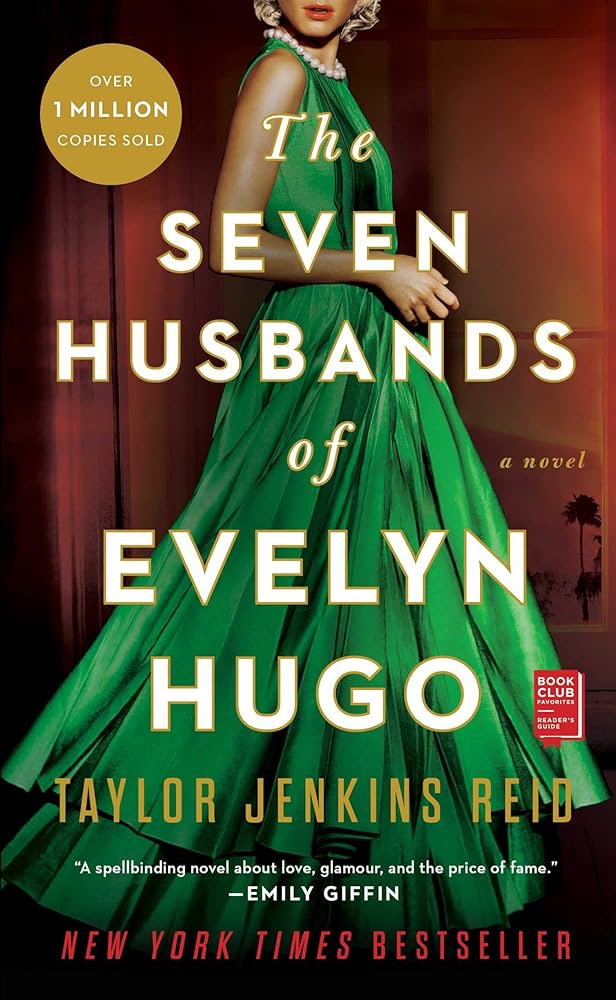Chapter 66
byChapter 66 begins with the protagonist sitting on the couch, her mind overwhelmed with the memories of her father. The images of him lifting her in the air in the backyard or sharing banana splits for breakfast are tinged with a bittersweet sorrow, as she has always associated them with the way he died—believing that his mistakes led to his untimely passing. Now, as she reflects on his life, she struggles with how to view him. A defining trait that once anchored her perception of him is gone, replaced by a more complex understanding of who he was and how his life came to an end, for better or worse.
After sitting for what feels like an eternity, replaying memories and imagined scenes of her father’s final moments, the protagonist can no longer remain still. She rises from the couch and walks into the hallway, determined to find Evelyn. She discovers Evelyn in the kitchen with Grace, and holding up a letter, she confronts Evelyn, questioning the real reason behind her visit. Evelyn, who had orchestrated this meeting under the guise of needing help with a story, admits that she had planned this all along, but it wasn’t just about the letter—it was about a connection, about finding someone who could understand the complexity of her life and the story she wanted to share. The admission of wanting the protagonist to write her story—unflinching and honest—becomes a key moment, as Evelyn reveals her desire to control her narrative, even in the final chapters of her life.
As the conversation unfolds, Evelyn defends her actions, challenging the protagonist’s notion of self-interest. The protagonist, however, is not easily convinced. Evelyn’s boldness in confronting her, urging her to take responsibility for her own ambitions, reveals the complexity of their relationship. The protagonist, still grappling with her emotions over her father’s letter and the messiness of her own life, is forced to reckon with the uncomfortable truth of how much she has been influenced by Evelyn’s calculated moves. Yet, despite the tension, Evelyn provides clarity in her final words about the nature of life—no one is completely a victim or a victor. We are all somewhere in between, constantly navigating the gray areas of our actions and motivations.
Evelyn’s sharp insights into life’s contradictions leave the protagonist questioning her own role in the story. She walks away briefly to wash her hands, seeking a moment of solitude to calm the nerves that seem to take over when faced with Evelyn’s candidness. But as Evelyn continues to reveal more about her past, including her battle with breast cancer and the urgency of finalizing her affairs, the protagonist is once again confronted with her complexity. Evelyn, despite her fame and manipulation, is deeply human, facing her mortality and trying to leave behind something meaningful. The protagonist, still wrestling with her feelings of shame, guilt, and even a twinge of sympathy, ultimately makes the decision to step away. Yet, in that moment, she’s also forced to acknowledge the enormous weight of Evelyn’s life and the responsibility of telling her story.
In the final part of this chapter, Evelyn lays out her plan for the protagonist: finish the book, finalize her will, and deal with the legacy she will leave behind. She places the letter—the one she’s held onto for decades—into the protagonist’s hands, further emphasizing the weight of what she’s about to undertake. The protagonist, feeling both burdened and conflicted, decides she’s had enough for the day, telling Evelyn she can’t take any more of the conversation. This interaction leaves the protagonist with a whirlwind of emotions, but it also marks a turning point—one that forces her to confront the painful reality of her feelings toward Evelyn and the task ahead of her. The book, the story, and Evelyn’s legacy are now intertwined with the protagonist’s own journey, one that will demand more than just writing—it will require grappling with the complexities of life, loss, and the imperfect nature of human relationships.
The conversation between Evelyn and the protagonist is charged with a blend of vulnerability and power, showcasing the tension between the two women as they navigate the complexities of truth, legacy, and self-perception. The protagonist is caught between her personal grievances and the moral weight of telling a story that is at once her own and someone else’s. This chapter serves as a critical turning point, setting the stage for the protagonist’s evolution as she faces the challenges of writing Evelyn’s story, all while confronting her own emotions and understanding of her father. As Evelyn’s looming presence continues to shape the protagonist’s path, it’s clear that this narrative will be anything but simple, and it will demand more than the protagonist ever anticipated.


